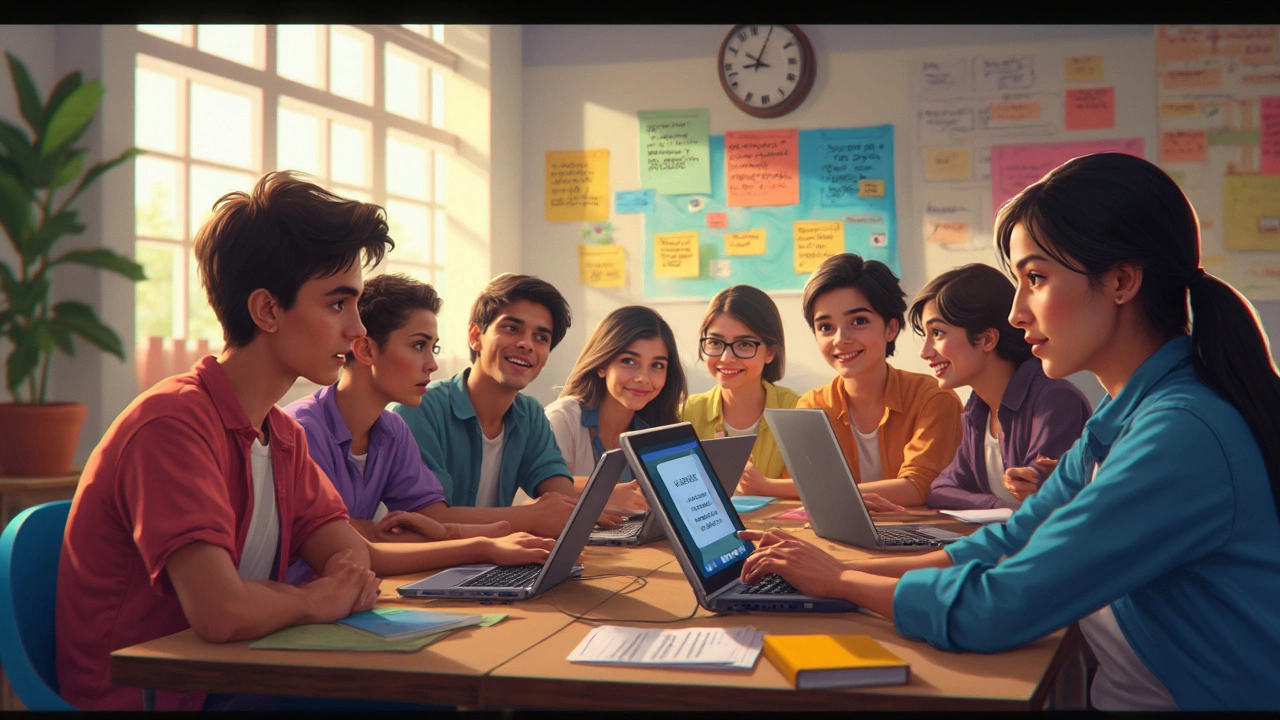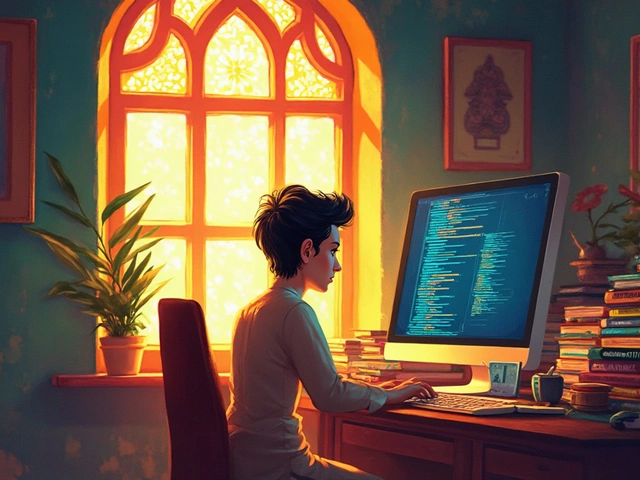
I’ll be honest—Python is a friendly beast, but people have wild ideas about how long it takes to tame it. You’ll hear everything from “You’ll be coding like a pro in a weekend!” to “It takes years to master.” That’s the kind of range that can make your brain hurt before you write your first line of code. The truth is buried somewhere in between, and it depends a lot on what you want from Python. Are you just trying to automate boring stuff? Or do you dream of building epic games and AI bots that seem smarter than my insistent cat Luna?
What Affects How Long It Takes to Learn Python?
Forget those one-size-fits-all timelines you see flashed across YouTube. No journey with Python looks the same, and that’s not just talk. Let’s break down what actually makes a difference:
One of the wildest facts? Python was designed to be readable above all. That’s why its syntax looks closer to English and why people say it’s beginner-friendly. But your prior experience with computers can mess with your learning speed—a background in another language (even if it’s just dabbling in HTML) means you’ll find concepts like loops and variables a lot less scary. If you’re brand new to coding, you’ll probably spend more time wrapping your head around how computers ‘think’ than someone who has seen a for-loop elsewhere.
Motivation plays a sneaky but huge role. Remember the last time you tried eating healthy or starting a new routine? Coding is no different. If you launch into Python with a real problem you want to solve—like automating report generation, scraping cool weather data, or getting your IoT lightbulbs to flash to music—you’ll pick things up a lot faster. People who chase projects learn more efficiently than those who only follow a course step by step. I’ve seen it play out in programming clubs: the folks who have a personal itch to scratch move at triple speed compared to those ‘just learning it because everyone says it’s useful.’
Consistency beats marathon sessions every single time. Messing around with Python for 30 minutes five times a week is better than a single exhausting four-hour session once a week. The reason’s simple: the brain remembers more when you give it repeated, shorter workouts. This isn’t just my advice—psychologists call it ‘spaced repetition.’ If you’re curious, there was a 2011 study from the University of California showing that language learners who broke study into short, frequent sessions outperformed those who crammed. I find the same with Python: small, steady effort builds “muscle memory” for code.
And you’re not alone if you wonder about age. Python isn’t picky about age. I’ve met teenagers building their own Discord bots and retirees using Python to analyze their investments. Your learning speed might slow if you’re completely new to digital tech, but with enough curiosity (and a little stubbornness), you’ll get there.

How Much Time Do You Really Need? Broken Down by Goals
So, what does the timeline look like? Here’s a no-nonsense roadmap. Just keep in mind, this is what I see *most* people reaching, assuming a pace of 5–10 hours of focused, honest practice per week. Doing a little more or less just slides these numbers around a bit.
| Goal | Weeks | Description |
|---|---|---|
| Read/Understand Simple Code | 2–4 | Getting comfortable with variables, if statements, basic functions. |
| Write Simple Scripts | 4–6 | Creating short programs to automate tasks or do calculations. |
| Use Libraries (like Pandas, Requests) | 8–12 | Learning how to import libraries, handle data, do web scraping or file processing. |
| Build Mini Projects | 12–20 | Making calculators, simple web apps, or automation tools. |
| Job-Ready (Entry Level) | 20–40 | Fluent in basic Python, able to debug, write functions, work with APIs, read others’ code. |
| Specialized Areas (Data Science, AI, Web Dev) | 40–100+ | Skills to work with data analysis, machine learning, Django, or Flask, plus tutorials in your field. |
You probably spotted that I didn’t use months or years. Everyone learns differently. Someone who’s building Python into their day job, for instance, might hit an “entry level” benchmark in about half a year, assuming a moderate weekly investment. But if you’re squeezing in 15 minutes before bed, progress will stretch out—and that’s totally fine. I always say: the only timeline that matters is yours. Lots of people quit because they think they’re “too slow,” but the trick is steady forward motion.
Want the quickest wins? Start with the basics: variables, data types, loops, conditions, and functions. Leave out OOP (object-oriented programming) until you’ve actually needed it in a project. Most people get stuck when they overthink concepts they’re not yet using. For now, think of Python as a clever calculator or a reliable assistant—make it do the boring stuff for you, then grow from there.
Be smart with your time. If you get confused, don’t stew. Drop a question on Stack Overflow, jump on a Reddit thread, or join a Discord server. There’s a reason Python has been the world’s most popular programming language since 2023—it has a gigantic, friendly community ready to help you out of just about any jam.
And don’t forget about practice. Typing out code examples really helps. You wouldn’t expect to learn guitar by just reading about chords, right? The same goes for Python. Run code, break it, fix it, rinse, repeat. I know people who swear by writing code by hand, on paper, to cement new tricks—not my style, but hey, whatever works!

Tips and Tricks to Learn Python Faster (Without Burning Out)
Luna (my cat) has a simple philosophy: experiment with everything, nap a lot when you fail, and come back for round two. Oddly enough, that works pretty well for Python too.
- how long to learn python is not a one-size-fits-all answer. If you want a shortcut, solve real problems or build things that excite you—don’t just follow textbook examples.
- Don’t chase “complete roadmaps.” Start with the fundamentals and follow your curiosity. Maybe one day you’ll veer into making Discord bots, the next it’s analyzing COVID data. That’s learning in a nutshell—messy, but effective.
- Set “tiny goals.” Don’t say, “I’ll learn all of Python in a month.” Break it into real steps: “This week, I’ll write a guessing game. Next, I’ll scrape headlines off a news site.” Projects give you a sense of completion and skill in bite-sized chunks.
- If you’re juggling a busy schedule, use apps like Anki (for spaced repetition) or Pomodoro timers to pack more punch into short bursts. Lots of coders do 25 minutes on, 5 minutes off—keeps your brain sharp, avoids burnout.
- Be patient with syntax errors and bugs. Everyone deals with those (even senior devs). Learn how to read error messages, Google them, and hang out in forums. Stuck on something for an hour? Step away, pet your cat, take a walk. Fresh eyes almost always see the answer.
- Mix learning materials. Video tutorials, coding challenges (like LeetCode or HackerRank), interactive platforms (try freeCodeCamp), and books—switching it up fights boredom and hits different learning styles. You don’t have to stick to just one.
- Read code written by others. That’s how you pick up tricks and idioms, like learning to cook by tasting someone else’s dish. GitHub is full of mini-projects for any interest.
- Keep a learning log. Every time you learn a new function or fix a bug, jot it down. In a few weeks, you’ll be shocked how far you’ve come. There’s science behind journaling for skill retention (a 2020 paper in Psychological Science backs it up!)
- Don’t get stuck on “mastery” before you apply what you know. Plenty of jobs just want a solid, practical Python user, not a guru who can recite the Standard Library by heart.
Every coder has their “why.” For me, Python was about automating document sorting (so much less boring than doing it by hand). Yours could be web apps, AI, or simply making your life easier. Don't let flashy projects or “hackathon prodigy” stories fool you—there’s plenty of time to learn the advanced stuff later.
In case you’re still worried about being too slow: Python updates come out every year, and people in tech always have to keep learning. Nobody is “done” learning Python. The real magic is finding problems worth solving and chipping away. If my cat could code, she’d probably use Python to order more treats. You? You’ll find your thing, too, as long as you show up and type.





